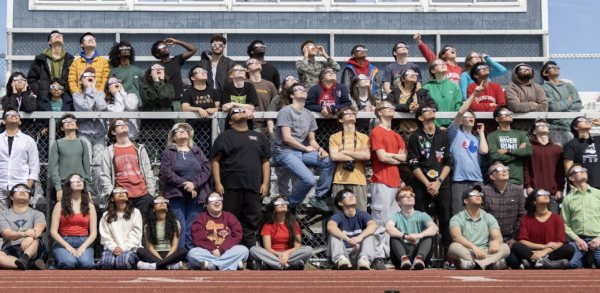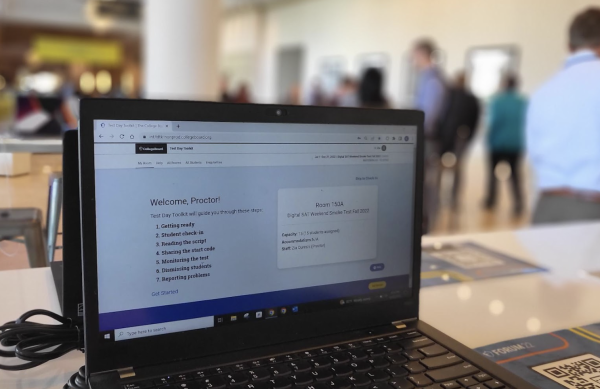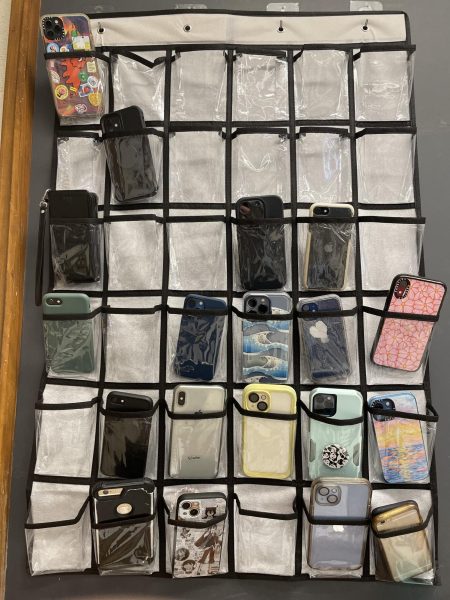Should Tests Be Administered During the COVID-19 Pandemic?
April 6, 2021
This year has been vastly different with Lexington High School students and teachers working to adapt to a new learning environment imposed by the COVID-19 pandemic. Among other issues, test-taking, student integrity, and the administration of tests in the pandemic-altered school setting itself have come into question. To avoid inaccurately evaluating and disadvantaging students, tests should not be administered during the COVID-19 pandemic.
Prior to the pandemic, most teachers gave out tests and quizzes. These assessments were given regularly and communicated valuable learning feedback to teachers and students alike. At the same time, some teachers have sought to expand the variety of assignments given to students — there has been a general consensus among teachers that solely relying upon tests and quizzes to grade students does not accurately portray students’ abilities.
“I think there are limitations of tests and quizzes, but that is something that traditionally has been a big part of grades in school,” Chris Doucette, a mathematics teacher at LHS, said.
Teachers who have generally refrained from testing this year are questioning the significance of tests and their ability to measure students’ knowledge.
“I do hear many colleagues both in my department and out are giving quizzes… I’m confused by the merit of giving a quiz. Does the quiz of a student really test the student, best friend, or textbook?” Erin Barrett, a social studies teacher at LHS, said.
This year’s changes have only raised more questions surrounding test security. Finding an approach that assesses students while remaining fair to all regardless of whether they are in-person or remote, have cameras turned on or off, et cetera, while also effectively testing students’ comprehension of material, has proved to be challenging thus far.
“My thoughts are that given the opportunity, kids will cheat on a test or a quiz. And so, if you’re going to give a test or quiz that counts as a real grade on Aspen, then you kind of have to give it as a take-home quiz. Because it’s not fair if the kids in the classroom can’t cheat but the kids at home can. I’m not saying that every kid is a despicable cheater, but I’m saying that I’m realistic and the mom of two kids,” Barrett said.
Other teachers have been quick to agree, emphasizing that it would be unreasonable to assume no cheating occurs.
“In COVID, I’m not going to be naïve enough to think that students can’t be having a second screen, or whatever else to address and solve problems. Now, hopefully students are following the honor code and being responsible, but I’m not naïve enough to think that everybody is doing what they should be,” Doucette said.
From a student perspective, teachers have implemented some methods to reduce cheating, but at the same time, there appears to be a general agreement between teachers and students alike that no method is flawless.
“Some teachers require we have our cameras on during the test or class and some teachers give us quizzes in Lockdown Mode which prevent[s] us from using other tabs on our computer or whatever we’re using. But other than that there’s not really any strict policy to prevent cheating,” Ashley Zhang, a sophomore, said.
While a handful of teachers have used Locked mode when administering tests and quizzes via Google Form, some believe this method puts certain students at a disadvantage.
“I don’t think that manipulating the test and putting it on Locked mode is fair. Because one student may have one computer, a Chromebook, but another student may have a tablet, a MacBook… Locking a quiz, I don’t think it’s fair to kids that don’t have a second device at home,” Barrett said.
Tests should not be given during this time because teachers cannot properly evaluate students due to the lack of test security and certain students are put at an unfair disadvantage because of their varying technological circumstances and choice of learning modes.



